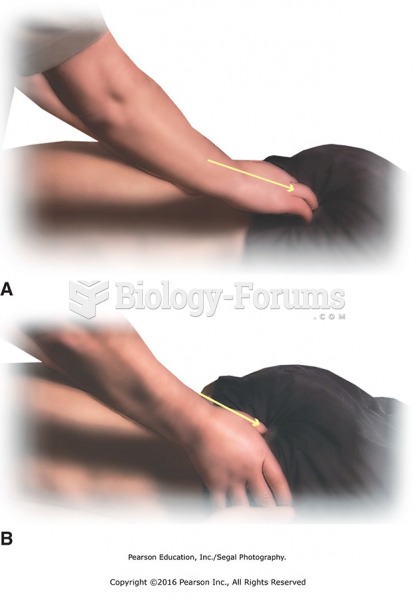|
|
|
On average, the stomach produces 2 L of hydrochloric acid per day.
According to animal studies, the typical American diet is damaging to the liver and may result in allergies, low energy, digestive problems, and a lack of ability to detoxify harmful substances.
The newest statin drug, rosuvastatin, has been called a superstatin because it appears to reduce LDL cholesterol to a greater degree than the other approved statin drugs.
The B-complex vitamins and vitamin C are not stored in the body and must be replaced each day.
To prove that stomach ulcers were caused by bacteria and not by stress, a researcher consumed an entire laboratory beaker full of bacterial culture. After this, he did indeed develop stomach ulcers, and won the Nobel Prize for his discovery.
![People have seen patterns in the stars since ancient times.[5] This 1690 depiction of the constellat](https://biology-forums.com/gallery/47/medium_12359_26_01_13_3_44_40.png) People have seen patterns in the stars since ancient times.[5] This 1690 depiction of the constellat
People have seen patterns in the stars since ancient times.[5] This 1690 depiction of the constellat
 John Lewis Krimmel’s painting of the Fourth of July in Centre Square Philadelphia (1812) shows the d
John Lewis Krimmel’s painting of the Fourth of July in Centre Square Philadelphia (1812) shows the d
 This lithograph of the New York draft riots, 1863, shows that although the rioters mainly targeted b
This lithograph of the New York draft riots, 1863, shows that although the rioters mainly targeted b




